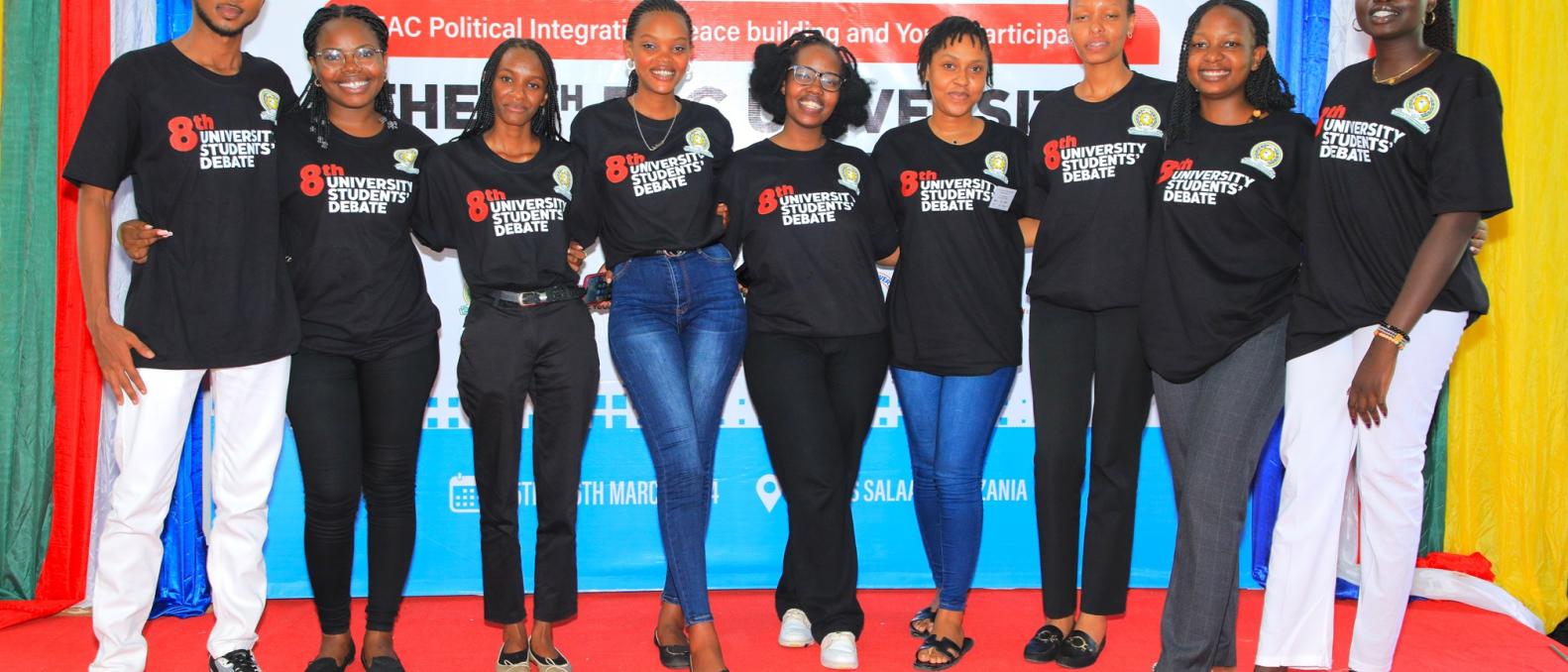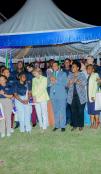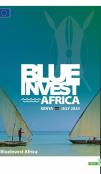Debating the Future: EU Backs EAC Youth Leaders in Integration Discussion

Christine Grau, the European Union (EU) Ambassador to Tanzania and the East African Community (EAC), found herself in a familiar setting on March 25, 2024. Years ago, she, together with other students, actively participated in simulation exercises discussing European integration, a time when the EU had just 12 member states. The debates, back then, she says, centered on hot-button issues like a common currency, foreign policy, and free movement within Europe.
Fast forward to today, the EU that students envisioned then is a reality, boasting 27 members, a single currency (the euro), and seamless movement of people within its borders. Now, she witnessed a similar exercise unfold in Dar es Salaam, Tanzania, at the opening of the 8th annual EAC University Students' Debate Competition held at Ardhi University, which was supported by the EU.
The debate aims to cultivate a regional platform for young people to engage in dialogue and advocate for regional integration initiatives.This annual event, hosted on a rotating basis, attracts over 200 participants, including students, lecturers, experts, and representatives from youth councils, the private sector, civil society, media, and academia.
Six students from each EAC Partner State (Tanzania, Kenya, Rwanda, DRC, Uganda, South Sudan, and Burundi) are chosen through an open call, specifically targeting second-year university students, to participate in the debate.
This year's theme, "EAC Integration, Peacebuilding and Youth Participation," challenged students to debate, research, and analyze the role of youth in promoting peace, human security, human rights, and social justice within the EAC region.
Three judges from civil society, academia, and the EAC Secretariat oversaw the debate. Additionally, nine students and one lecturer from each of six local universities participated as audience members. The event also involved a moderator, past EAC Youth Ambassadors, and staff from the EAC Secretariat.
Following the debate, one winner from each Partner State was appointed as an EAC Youth Ambassador, with the runner-up becoming Deputy Ambassador. Both will act as focal points for targeted awareness campaigns planned by the EAC within their universities and Partner States for a year.
"The whole experience was transformative and enriching. It combined learning, networking and developing leadership skills. Furthermore we got a clear knowledge of the EAC through the research we did before the debate and through the arguments we had with other debaters.” said Hope Kacheri, the newly appointed EAC Youth Ambassador to Tanzania.
Through her new role, Ms. Kacheri, a student of Tumaini University says her primary goal is to represent the interests of Tanzanian youth from national level to regional level to ensure that their challenges aspirations and contributions are communicated effectively to the EAC.
“I plan to achieve this by initiating and organizing youth mentorship programs, educational seminars and workshops to bring about youth empowerment and meaningful participation on matters affecting youth within the region. Also I aim to establish partnerships with local universities and organizations to enhance youth engagement and participation in EAC initiatives.” she said
Ms Kacheri and other six appointed EAC Youth Ambassadors will spearhead peer learning, outreach, and sensitization programs in their universities and border communities. This will be done in collaboration with the EAC Secretariat, development partners, the East African Legislative Assembly, and EAC Ministries.
EU's Commitment to Youth Engagement
Ambassador Christine Grau highlighted the EU's commitment to youth engagement, referencing the launch of the 2022 Youth Action Plan in Tanzania. This plan supports the EU's efforts to promote youth participation and recognizes youth as strategic partners in decision-making in partner countries globally.
In translating these commitments, the EU, she said, has established the Youth Sounding Board, an initiative aims at creating a space for meaningful involvement of young people in the EU’s international cooperation policy. In Tanzania the newly Youth Sounding Board will be launched on 23 May 2024.
"We are delighted to see the EAC share our commitment to youth engagement," stated Ambassador Grau. "We are pleased to financially support a series of youth engagement initiatives in the coming months. In collaboration with the EAC Secretariat and MS-TCDC, we ensured this year's EAC Students' Debate took place, as we believe it fosters valuable dialogue.”







